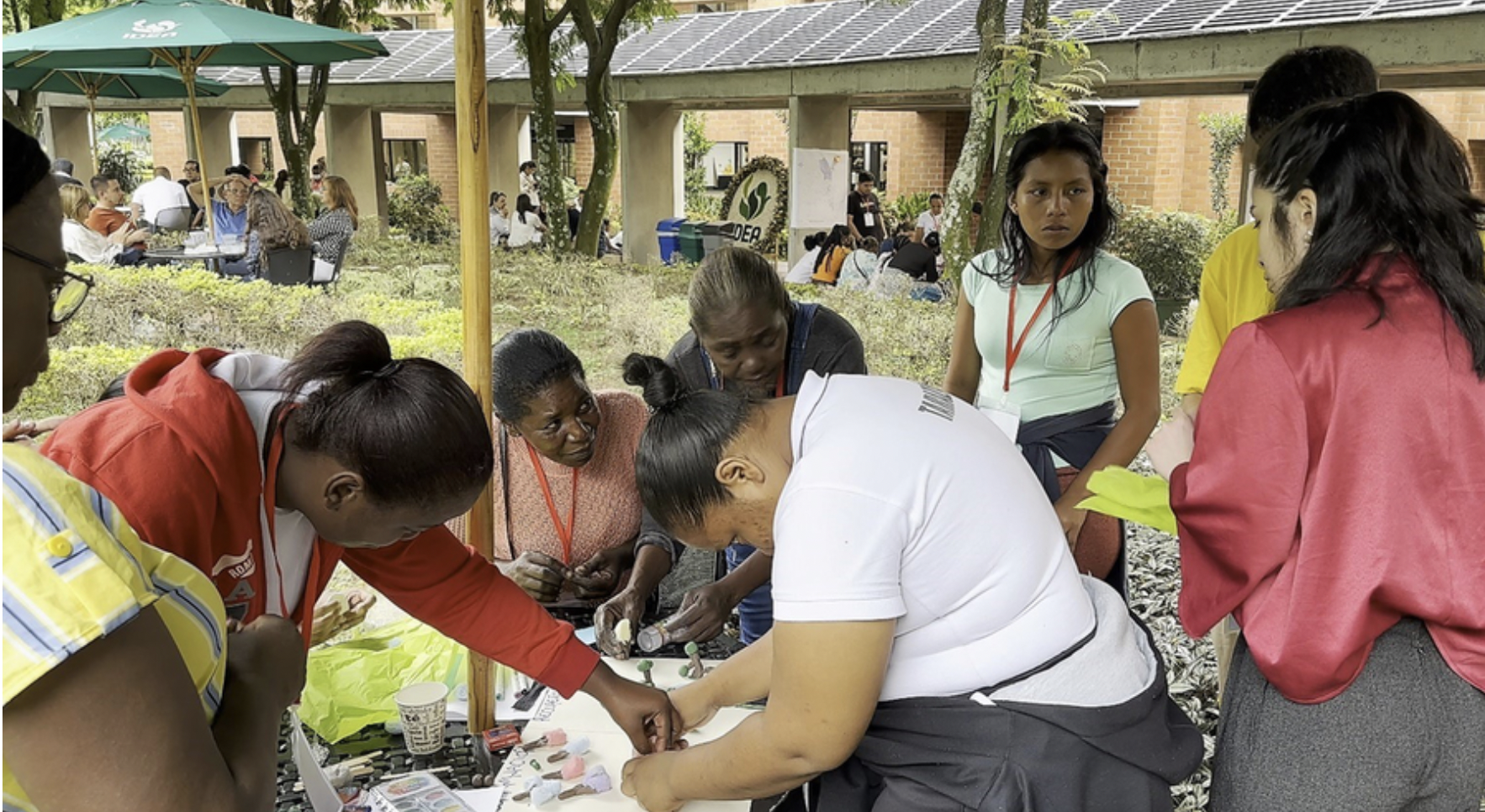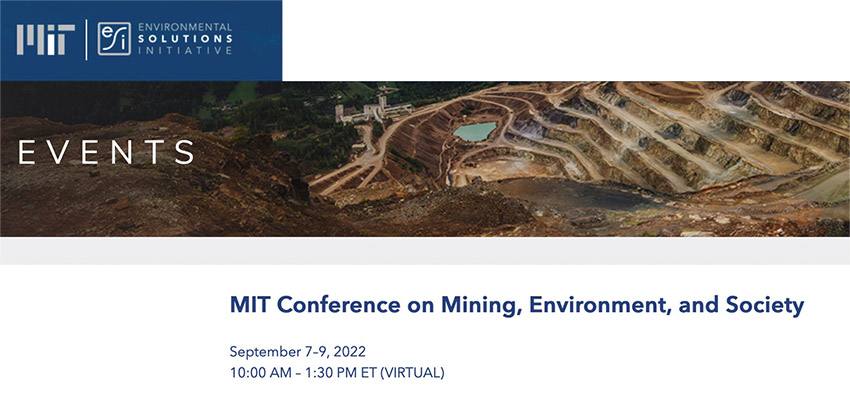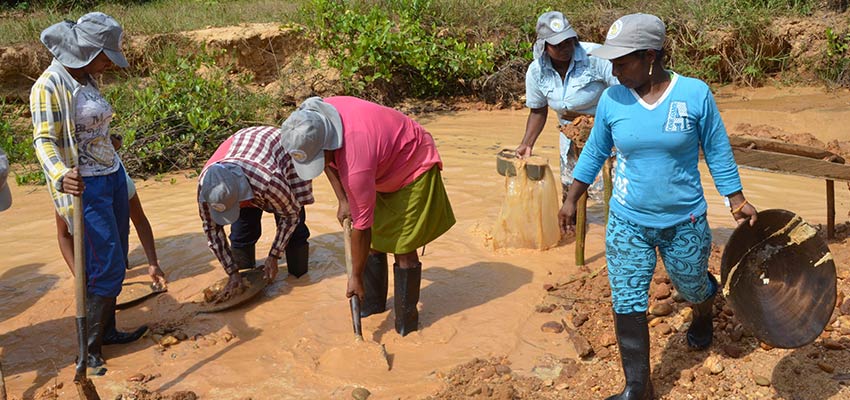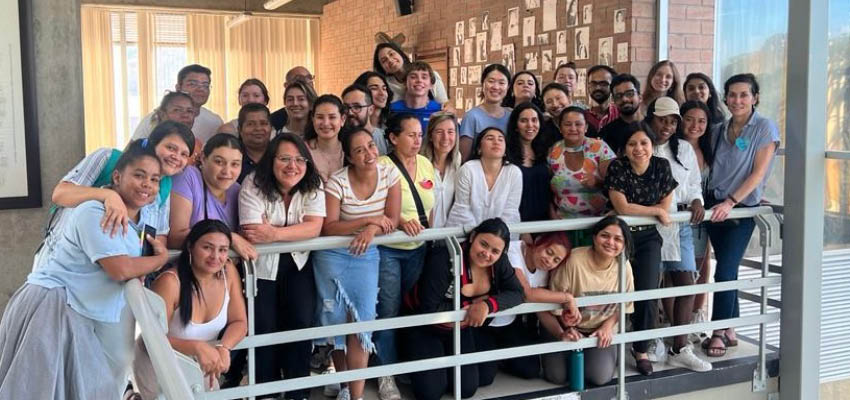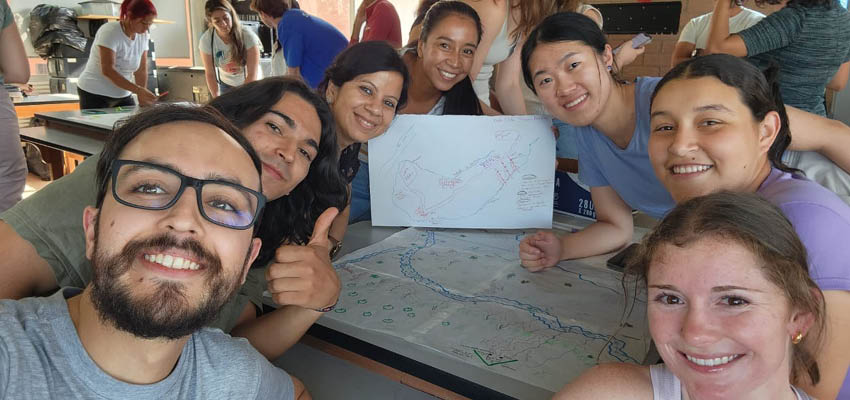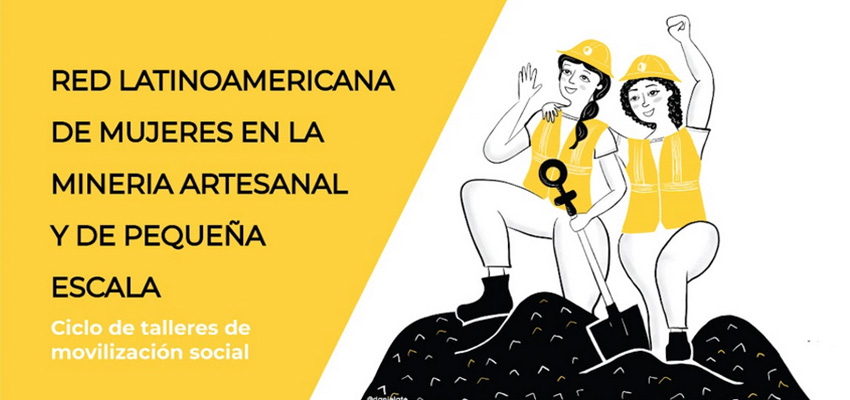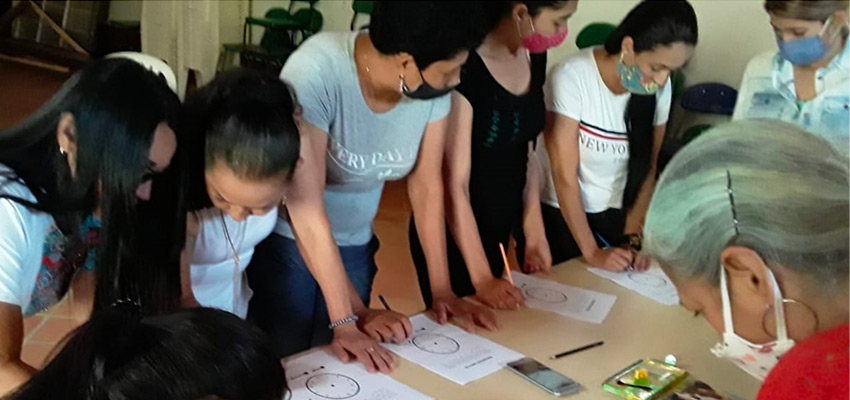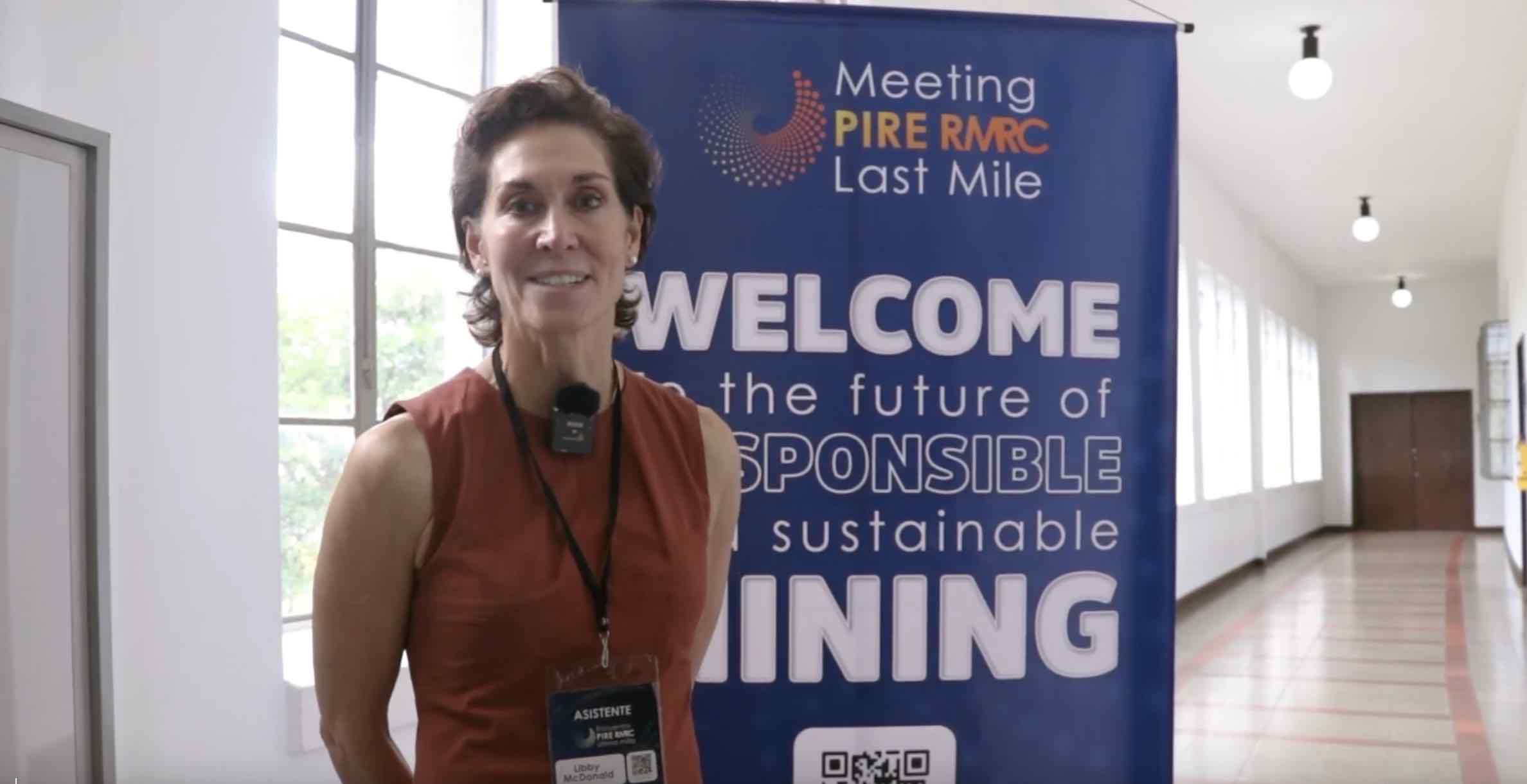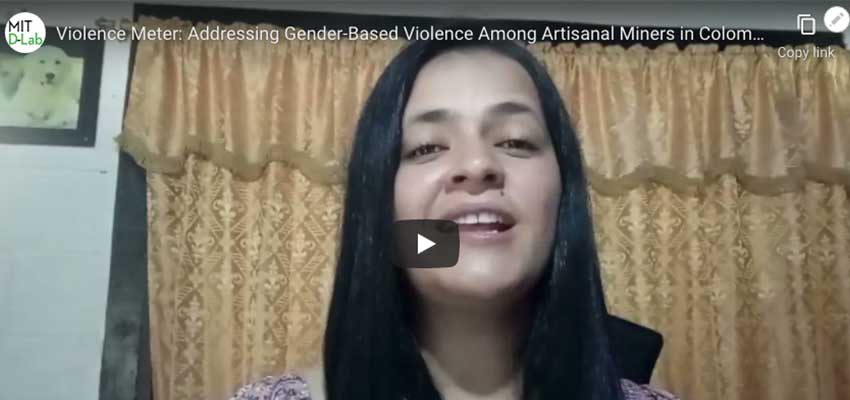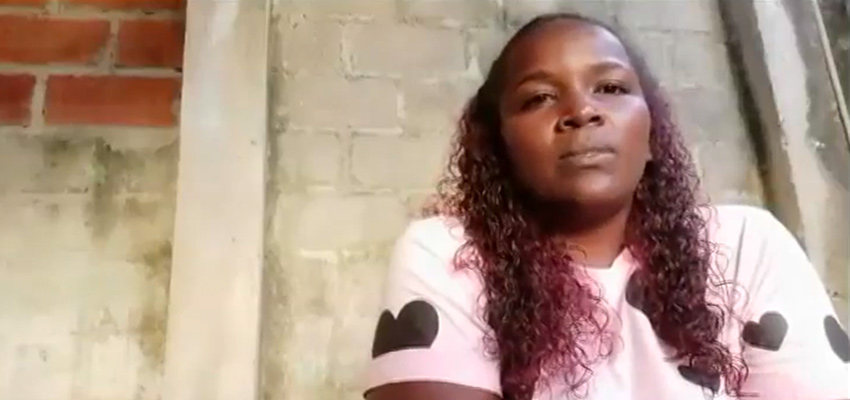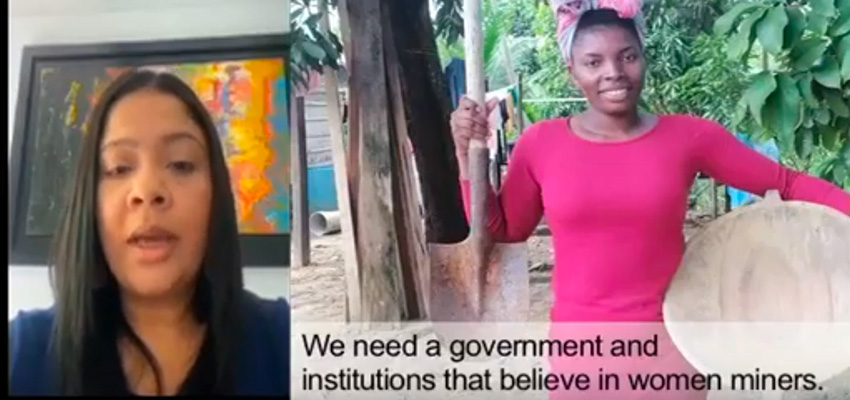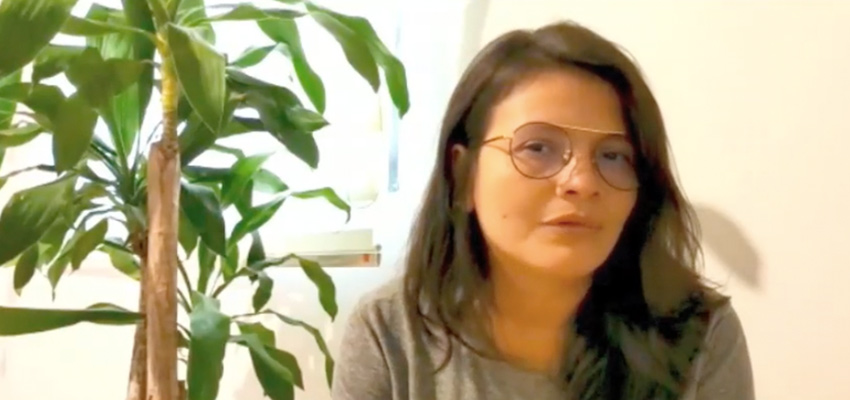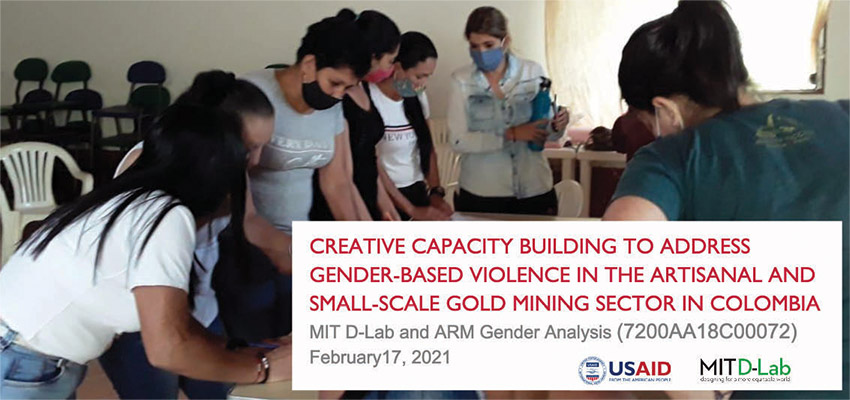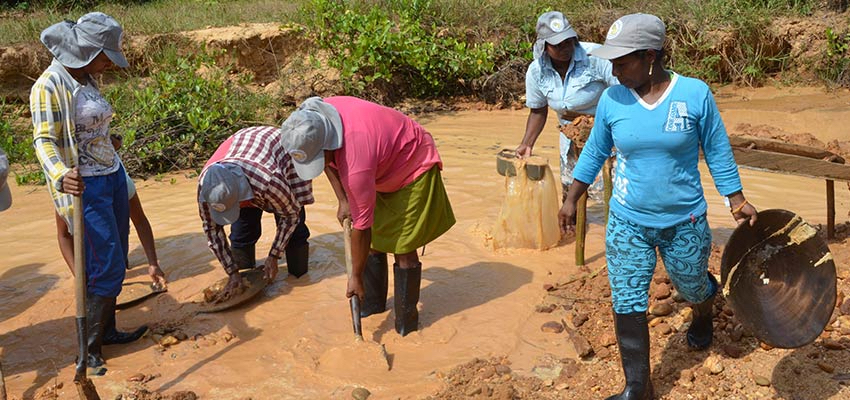
This initiative of MIT D-Lab and the Alliance for Responsible Mining (ARM) tackles the challenges of gender-based violence (GBV) and environmental degradation in mining communities in Colombia by providing women miners with skills to design and implement campaigns to overcome social and economic GBV through an innovative movement-building approach.
This approach incorporates elements of three validated methodologies.
1. Public Narrative (Harvard) uses personal and collective stories to mobilize groups into action around joint objectives.
2. MIT D-Lab's Creative Capacity Building (CCB) employs user-generated design and trains participants to design their own solutions to identified challenges.
3. Advocacy Capacity Building, provided by ARM, empowers women artisanal and small-scale miners with advocacy skills to influence changes in governance at local and national levels.
There is solid literature and emerging evidence about the linkage between extractive industries, in particular in regions dominated by mining, and gender-based violence (Oxfam International 2017, Oxfam America, 2016). In these male-dominated environments, women suffer harassment, discrimination, sexual violence, domestic violence, and economic violence. In addition, when women have increased economic involvement in mining activities or take on roles as local leaders, domestic violence spikes as a consequence of a perceived reversal of traditional gender roles. Based on needs assessments conducted in 2018 in Los Andes, Colombia by MIT D-Lab, it has become evident that similar GBV linked to the mining industry is experienced in these regions.
Artisanal and small-scale gold mining (ASGM) is responsible for approximately 60% of gold production in Colombia. Mining is a traditionally masculine sector globally. This is also the case in Colombia where only 17% of the ASGM labor force is composed of women and women’s organizations are excluded from conversations about mining as it is not recognized as a “woman’s issue.”
Implemented in partnership with Alliance for Responsible Mining (ARM) in four municipalities in Antioquia, Colombia, this program increases awareness about GBV and environmental degradation and provides women miners with skills to design and implement campaigns to overcome social and economic GBV in ASGM through an innovative movement-building approach that incorporates elements of three validated methodologies:
- Public Narrative (Harvard Kennedy School) uses personal and collective stories to mobilize groups into action around joint objectives.
- Creative Capacity Building (CCB) (MIT D-Lab) uses user-generated design and trains participants in the design process and critical thinking skills. The CCB components inspire local creativity and knowledge, teaching participants to design their own solutions to identified challenges.
- Advocacy Capacity Building provided by ARM empowers women ASGM miners with advocacy skills to influence changes in governance at local and national levels. By combining these methodologies, the project offers women miners a safe space to share stories of GBV and provides a framework to identify specific GBV challenges and collectively build solutions. Ultimately, women miners will see themselves as capable of devising a way forward, working effectively and safely together to do so at the municipal and national levels, sparking local solidarity and self-determination.


